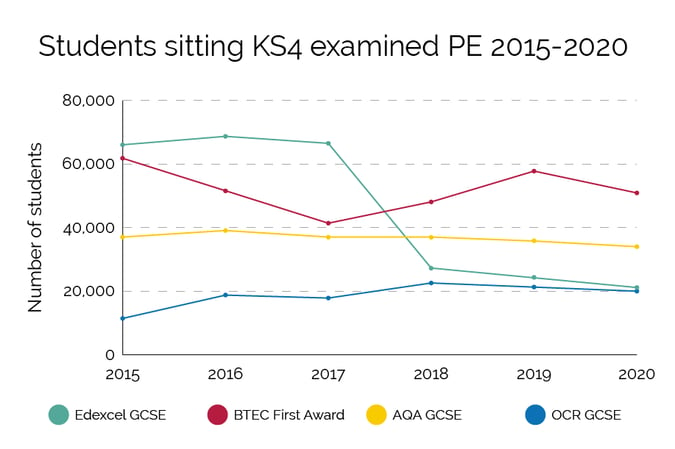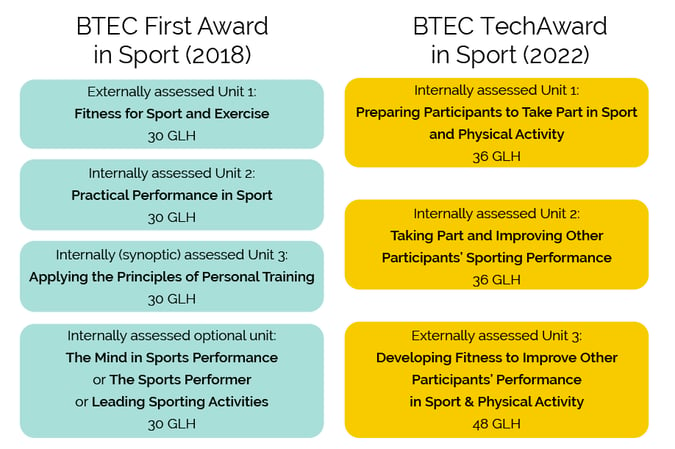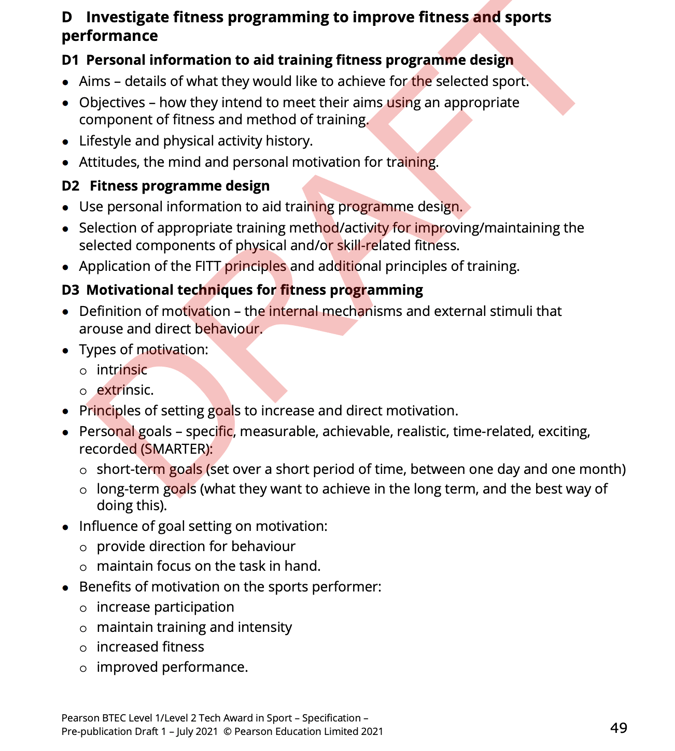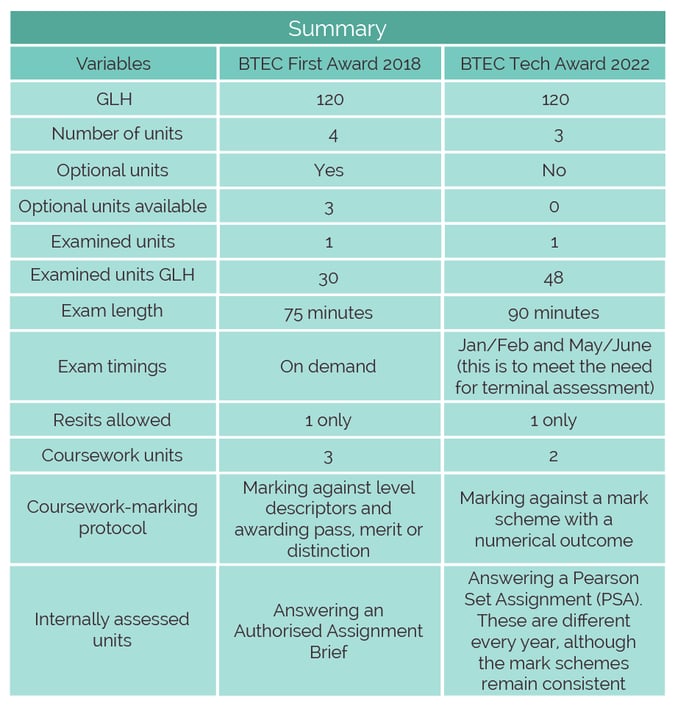Major changes to BTEC Sport at Level 2: What every PE teacher needs to know!
Impending changes to the biggest PE and Sport qualification in England and Wales - read on for the critical information you need about the new BTEC Sport course.
Useful documents:
Draft specification
Introducing the Redeveloped BTEC Tech Awards
As I write (November 2021), the BTEC Sport First Award and the BTEC Technical Award in Sports, Activity and Fitness have their final cohort of students beginning the course. As of September 2022, both courses will be defunct, with only the final batch of year 11 students (year 11 from September 2022 until July 2023) able to submit coursework and take exams with final assessments in the summer of 2023. In fact, 2023 is the final year in which the current tranche of BTEC sport courses will be included in official performance tables and able to contribute to Progress 8.
Haven't got time to read it now?
Bookmark this page (CTRL+D)
Both courses are being replaced by a brand-new qualification: the BTEC Technical Award in Sport, for first teaching from September 2022.
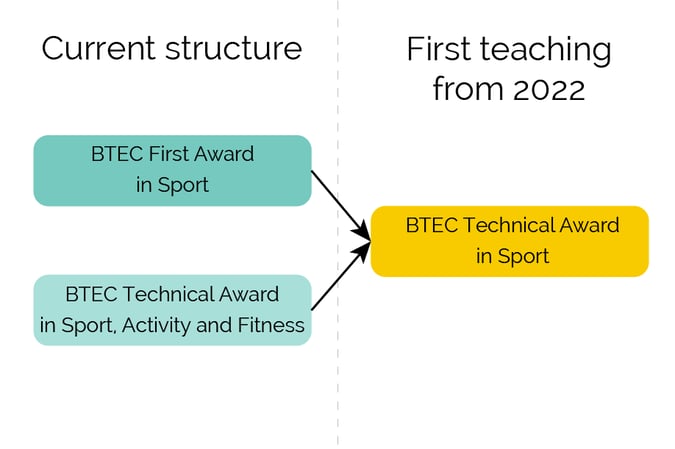 The total number of students studying these qualifications is, by far, the highest amongst PE and sport qualifications in the English and Welsh system (see below). Therefore, this overhaul is going to have a major impact on the ways in which our subject is taught.
The total number of students studying these qualifications is, by far, the highest amongst PE and sport qualifications in the English and Welsh system (see below). Therefore, this overhaul is going to have a major impact on the ways in which our subject is taught.
Why are the courses changing?
The changes to BTEC sport courses are in line with a national review of all BTEC qualifications at KS4 and KS5. In fact, whilst an area of concern given the total number of centres and students involved (see below), the KS4 picture is far clearer than at KS5. The published information on impending changes to KS5 BTEC courses is murky at best and there appears to be a lot of ground to cover before draft specifications are published. In contrast, the KS4 BTEC course is drafted and available online. Therefore, teachers have the remainder of this academic year to prepare their new course and to have it ready for teaching in September 2022.
The changes are motivated by two central factors:
1) to match the rigour of GCSE courses;
2) to give candidates a taste of the sector which they are interested in.
As an example, the new BTEC Tech Award Sport has an exam component that contributes 40% of the overall mark. Whilst this remains shy of the 60% exam contribution in most GCSE PE courses, the gap is far smaller compared to the 25% examined contribution from BTEC Sport First Award (2018). Furthermore, the Pearson Set Assignments (PSAs) which are unique each year and are the tasks that students will complete for their internally assessed units, provide a less predictable or formulaic structure to that of Approved Assignment Briefs (AABs).
What is the national picture for BTEC Sport courses in 2021?
The BTEC Sport First Award course is, by far, the most popular KS4 qualification in our sector.
BTEC Sport First Award numbers have remained relatively consistent throughout the past six years. Furthermore, since the 2016 changes to GCSE PE courses, BTEC Sport First Award outperforms all other PE qualifications. Therefore, any uncertainty in our sector in relation to the new course is going to have a major impact on student performance across the sector.
As PE teachers and Heads of PE read this post, they will have four options in mind. Whilst this table is not evidence-informed, it does reflect the conversations that I (James) have had with hundreds of colleagues in recent months.
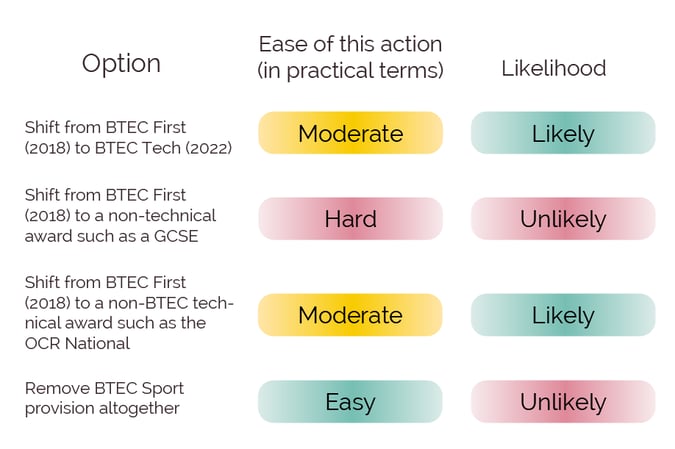
The outcome of PE departments’ decisions will be a blend of the actions above and there will be some drop-off of BTEC candidates in 2022 and first assessment in 2024.
Our prediction is that BTEC numbers will fall from 50k-55k to 40k-45k. This is an area for concern considering that the general trend of PE qualifications at KS4 has been falling in recent years. This graph shows the trend in qualification PE across the "big four" level 2 qualifications.
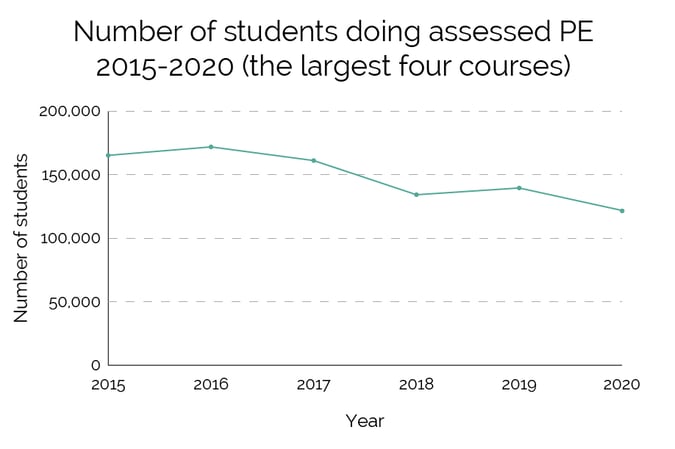 It is my opinion that current teachers of BTEC Sport First Award need to immediately study and interpret the new BTEC Technical Award Sport qualification to ensure that progression from one course to the next is seamless or to establish their course of action if continuing with the new BTEC Tech Award Sport is not their preferred option.
It is my opinion that current teachers of BTEC Sport First Award need to immediately study and interpret the new BTEC Technical Award Sport qualification to ensure that progression from one course to the next is seamless or to establish their course of action if continuing with the new BTEC Tech Award Sport is not their preferred option.
Tell me more about BTEC Sport Technical Award Sport (2022)
Pearson state that:
So, let’s examine this a little more by comparing the most popular current BTEC Sport course with the new iteration.
Different teachers will draw different conclusions from this illustration but one of the major factors is the increase in significance of the externally assessed unit moving from 30 GLH to 48 GLH. This increase is going to have an impact on classrooms up and down the country, with BTEC students under more stress for the terminal assessment. It should be noted that almost all of the content covered in the examined unit of the 2018 course is once again covered in the 2022 exam too. However, there is a tranche of additional material that will be examined and this is detailed below.
In essence, the new unit three is the equivalent of the legacy unit 1, with the addition of the material above.
What are terminal assessments?
Terminal assessments are a requirement of the new BTEC qualifications as they are for all school-based qualifications in England and Wales.
Terminal assessments for the BTEC Sport Tech Award Sport will be of two types:
1) An external assessment. All elements of the exam are unseen until the day of the exam. The exam can only be taken in year 11 or the final year of study.
2) Pearson Set Assignments (PSAs). PSAs will be unseen assignments and will change every year unlike the current Authorised Assignment Briefs. PSAs will be published to centres “well in-advance” of the assessment period (Pearson BTEC: Introducing the Redeveloped BTEC Tech Awards)
What this means in practical terms is that students will study during their course and will be assessed at the end of it rather than the current scenario, where students are able to “tick-off” assignments and exams as they progress through the course. This means that students' ongoing recall and understanding of concepts will be challenged, rather than their capacity to write about them once. My strong belief is that this will push teachers and students to outstanding record-keeping through files and online spaces so that the student is highly equipped to write their PSA once it is available. Furthermore, the publishing of PSAs will cause a flurry of activity in centres, as teachers and students realign their knowledge and understanding in line with the requirement of the PSA for that year.
What are PSAs?
Pearson Set Assessments will be published annually and will be different year after year. PSAs will be the specific assessment for the two internally assessed units of the new BTEC Technical Award Sport.
Here are seven facts worth being aware of:
1) PSAs are published annually.
2) PSAs cannot be modified.
3) PSAs are published well in advance of the assessment period.
4) PSAs are marked using a mark scheme, not assessment criteria.
5) PSA mark schemes are the same year after year even though the PSA context is different.
6) PSAs are moderated, not verified.
7) Moderators provide direct feedback to centres with marking being adjusted as part of this direct process.
So, what’s the summary?
The new BTEC Technical Award Sport is a major challenge for the PE teaching sector. I believe that too little is currently understood by the profession and this post, I hope, will go some way towards improving that.
Here are my five concluding statements:
1) The new course is a more rigorous experience than either of the current iterations.
2) Terminal assessments will cause teachers to need to keep students’ knowledge “alive” for longer.
3) Coursework marking and feedback time will decrease.
4) PSAs will be highly applied to enable the static mark schemes to be used in a specific context.
5) The moderation process will be more learner-friendly and will allow marking changes to be made before this impacts student results.
What is my final verdict?
The new course is an exciting opportunity to increase the rigour and perceived value of BTEC Sport courses. However, teachers will currently be concerned at the changes that they perceive. There is a clear training gap for teachers and Pearson will undoubtedly address this in the coming months.
Post-scriptum:
What is going on with the Level 3 courses?
Essentially, the future of Level 3 courses at the time of writing is murky to say the least. In recent months and years, the government has come under significant pressure regarding the implementation of T Levels. These are seen to be alternative courses for the traditional A Levels. However, the unavoidable marginalisation of BTEC Level 3 courses have left many educational experts and institutions concerned. The government is currently facing huge pressure to backtrack on their decision to remove the majority of funding for BTEC Level 3 courses. With T Levels in Sport not even being announced yet, this is very much a matter of “watch this space.”
%20Text%20(Violet).png)
